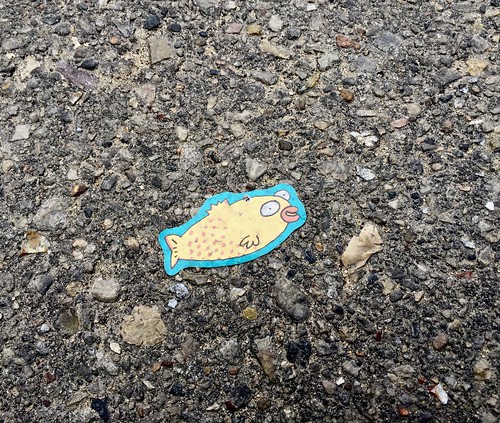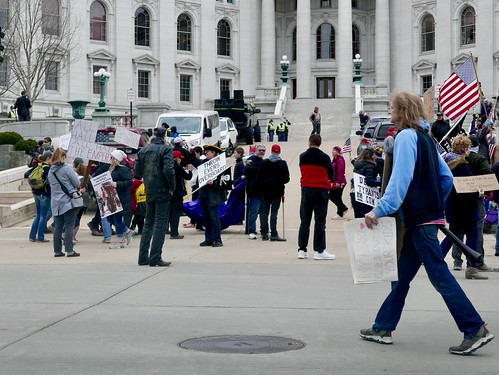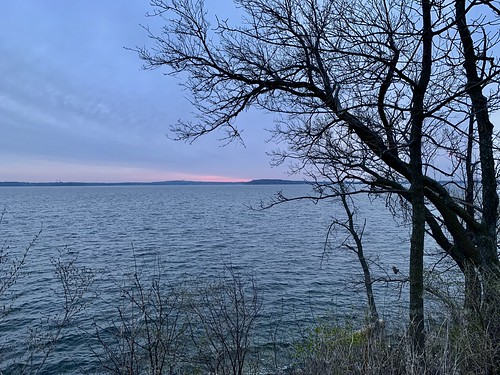"... such as bleach and isopropyl alcohol, could be used to kill Covid-19 in humans who contract the virus. Trump later claimed he was 'asking a question sarcastically… about disinfectant on the inside.'... Trump has been so eager to deliver good news to the American public, according to a senior administration official, that some White House staffers have presented their boss with upbeat findings that have yet to be vetted.... In an exchange on Thursday, Trump cited 'a very nice rumor' that heat and sunlight can kill the novel coronavirus. At previous briefings, he has also hyped the anti-malaria drug hydroxychloroquine as a potential promising treatment even though its effectiveness against Covid-19 remains inconclusive. Recently, several White House aides began urging the president to make the briefings far shorter and to only approach the podium to deliver announcements or tout victories, while leaving the technical aspects to the numerous health officials who typically join him at the dais.... Trump has resisted such advice for weeks, viewing the daily briefings as an ideal venue for him to connect with his supporters and perform his favorite tricks. In the absence of campaign rallies or other outlets for his message, Trump has used the briefings to needle his political opponents, smack reporters and air grievances.... Even after campaign aides briefed him on a series of unsettling polls about his appearances, Trump continued making the case privately that his sky-high television ratings would help him trounce Biden in November...."
From
"Trump grapples with a surprise threat: Too much Trump/Some allies worry the president is damaging his reelection prospects with his dominance of the briefing room during a public health and economic crisis" (Politico).
Perform his favorite tricks.... like
sarcasm?
Claiming something is sarcasm when it didn't much strike
anybody as sarcasm seems to be a new trick, and I don't think he should be practicing it in front of a gigantic audience of hundreds of millions of people — especially people who are struggling through something serious and hoping for something to feel hopeful about. Even if he'd practiced that particular sarcastic move in small clubs for years and honed the wording and delivery, I don't think it would ever have been right for the White House stage. And I appreciate Trump's spontaneity and rhetoric. You can see that in my posts over the last few years. But not everything works, and sarcasm is a bad choice in the Task Force briefing context. It mixes false statements in with the truth, but you're supposed to
get it, because it's funny. Fortunately, the move backfires.
And that's assuming it he was telling the truth when he called it sarcasm, which I don't think he was. But
assuming... Let's assume that when he said, "I see the disinfectant... is there a way we can do something like that by injection inside... it’d be interesting to check that so that you’re going to have to use medical doctors with, but it sounds interesting to me," he could have leaned more heavily into the sarcasm and said "I see the disinfectant kills the virus, so why don't we just inject the disinfection right into the patient?! That sounds like it just might work! How about all you doctors get on my brilliant idea right away and divert resources into experiments?! I'm sure some of these crazy reporters would love to volunteer to have Clorox injected right into them. Come on, you paragons of ethics, roll up your sleeves." Then we'd all see the sarcasm. So is that what Trump meant to do, but in a subtler style?
I don't believe it, but as I said, it backfires. Trump isn't the only one who gets to use humor. Social media blew up with jokes about Trump and the injected disinfectant. And then he drastically shortened the next press briefing. It wasn't so fun anymore. I'm glad that check on his power worked. Freedom of speech is not just for Presidents. And humor coming from a person wielding immense power — taking advantage of a captive audience — is problematic. I think Trump is a fantastic standup comedian. I
enjoy his performances. But some jokes fail.
And some things that are not jokes get called jokes after the fact, which is what I think happened here. Trump undercuts his own reputation as a humorist when he labels one of his non-humor statements as humor. So why did he do that? Desperation?
I told you yesterday how I thought he'd try to deal with disinfectant-injectiongate.
1. He'll say it's "fake news"... They said I recommended injecting bleach.... Who would say that?...
2. He'll rephrase his idea so it's situated in a context that makes some sense... how feasible is it to kill the virus once it does get inside the body?...
3. He was just asking the question of the expert, drawing him out....
But he didn't do any of those things. He did something I didn't even think of, calling it
sarcasm. It's a little demoralizing to those of us who have been giving him a sympathetic listen. Maybe I'm demoralized because I didn't find myself on the inside, with the people who understood the sarcasm. Did
anyone understand it as sarcasm?
In March 2019,
I went into some detail about Trump's use of sarcasm — laid on very thickly in front of a very sympathetic audience:







